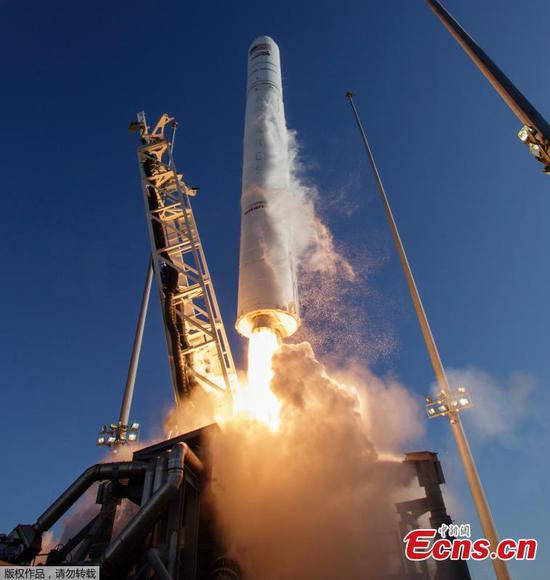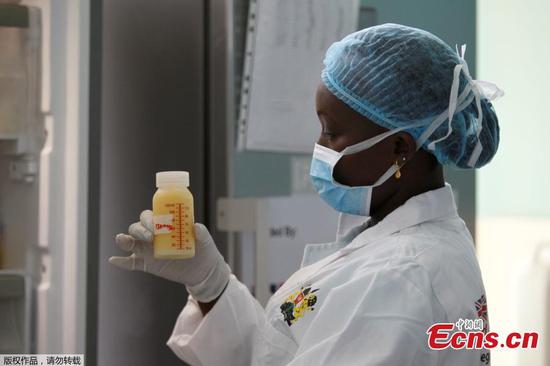Rule could further devalue startup Juul, leading producer of vaping products
The Trump administration is expected to announce this week that the United States will ban all e-cigarette products except those that taste like tobacco and menthol, a revision from its previous plan to take off the market all flavored e-cigarettes, according to media reports.
The revision is the result of a pushback from conservative groups who argue the original plan could hurt U.S. President Donald Trump's standing with voters next year because vaping is popular in key states he needs to win for reelection, The Wall Street Journal reported on Saturday, citing an unidentified White House official.
Juul Labs Inc, the leading producer of vaping inhalers, sells tobacco pods as well as mint and menthol flavors. Trump announced in September that the Food and Drug Administration, or FDA, would ban the sweet and fruity e-cigarette flavors popular with teenagers, leaving only those flavored like tobacco on the market.
Last week, Altria Group wrote down its investment in San Francisco-based Juul by $4.5 billion, or 35 percent, from the $12.8 billion the tobacco company invested about a year ago. It cited the Trump administration's planned ban on e-cigarette flavors, and that Juul may sustain further hits to its valuation as states look to ban e-cigarette flavors that appeal to youth and comprise about 80 percent of domestic vaping sales.
In return for the $12.8 billion investment, Altria received a 35 percent stake in Juul and entry into what it hoped would be a lucrative new market. The deal vaulted Juul into the top ranks of Silicon Valley startups.
Altria's stake was valued at $38 million last year, but is now pegged at about $24 billion because, in part, future sales growth no longer looks strong.
Through Oct 29, the U.S. Centers for Disease Control and Prevention, or CDC, reported a total of 1,888 cases of lung injury and at least seven deaths in 49 states stemming from vaping. The cause of the injuries is not yet known, but it appears to be related to THC-infused products and not to tobacco or flavored vaping products. Tetrahydroncannabinol, or THC, is the active ingredient in cannabis that gives users a "high "or "buzz".
"The latest national and state finding suggest products containing THC are linked to most of the cases and play a major role in the outbreak," the CDC said. "At this time, the Food and Drug Administration and the CDC have not identified the cause or causes of the lung injuries in these cases, and the only commonality among all cases is that patients report the use of e-cigarettes, or vaping products."
Altria's third-quarter earnings grew 0.3 percent from the same period a year to $6.9 billion "primarily due to higher net revenue in the smokeless products segment", the company reported. Altria is best known for Marlboro cigarettes, but also markets smokeless products branded as Copenhagen and Skoal.
Due to changing market conditions, Altria, parent company of Philip Morris USA, lowered its three-year growth forecast to 5-to-8 percent from 7-to-9 percent.
Vaping products are important to Altria's future because tobacco sales in the U.S. continue to decline. Cigarette smoking among U.S. adults aged 18 and above fell to 15.5 percent of the population in 2016 from 20.9 percent in 2005. Still, the CDC said about 38 million U.S. citizens smoked cigarettes "every day" or on "some days".
The U.S. Surgeon General first warned of the dangers of smoking in 1964. Since then, smoking has been linked to 87 percent of lung cancer deaths in the U.S. and 32 percent of coronary heart disease deaths and 79 percent of all cases of chronic obstructive pulmonary disease. Initially, vaping was viewed as a less dangerous alternative to smoking because nicotine can be delivered without burning tobacco and the paper wrapping of cigarettes.
A research paper led by David Levy, a professor of oncology at Georgetown University, said Altria's investment in Juul benefited both companies: Juul gained Altria's marketing clout and legal prowess in defending patent infringement and consumer health claims while the tobacco company gained entry into what it hoped would be a lucrative new market.
"From a public health perspective, the impact of the deal will depend on whether it leads to increased cigarette use (through increased initiation or less cessation) or less cigarette use (as a means of cessation or initiation into e-cigarette or no use rather than cigarettes) than would have occurred in the absence of e-cigarettes," the researchers said. "The future public health impact of the Altria-Juul Labs deal ... will likely depend on how the deal affects market competition and future FDA regulation."


















































